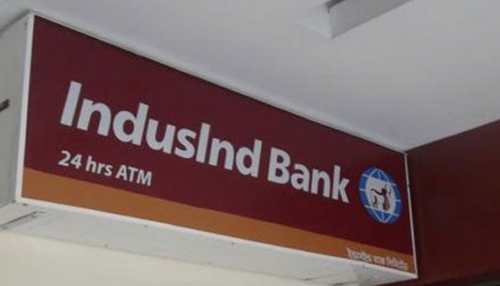- News>
- Companies
IndusInd Bank Q4 consolidated PAT down 12.3% to Rs 315.25 crore

On a standalone basis, the net profit fell 16.17 per cent to Rs 301.84 crore during the January-March quarter as against Rs 360.10 crore in the year-ago period.
Mumbai: Private sector lender IndusInd Bank has reported a 12.31 percent dip in its consolidated profit after tax at Rs 315.25 crore for the quarter ended March 2020 due to an increase in loan loss provisions, and also guided towards difficulties on asset quality because of the COVID-19 pandemic.
On a standalone basis, the net profit fell 16.17 per cent to Rs 301.84 crore during the January-March quarter as against Rs 360.10 crore in the year-ago period.
Its overall provisions jumped to Rs 2,440 crore as against Rs 1,560 crore in the year-ago period, which dented the bottomline the most.
The bank's newly appointed chief executive and managing director Sumant Kathpalia said the provisions included a floating provision of Rs 260 crore for COVID-19 related impact on asset quality and Rs 23 crore for accounts which are unrecognised as non-performing assets as per a RBI direction during the pandemic period.
Its overall gross non-performing assets (NPA) ratio jumped to 2.45 per cent of the total assets as against 2.10 per cent in the year-ago period on a consolidated basis.
Kathpalia said the bank's risk team has done a detailed assessment of the pandemic, under which it expects economic activity to restart in 50 per cent of the country by the third week of May, another 25 per cent by mid-June, and by early July for the remaining 25 per cent.
If the COVID-19 crisis plays out as expected, the lender will see a 0.80 per cent increase in gross NPAs in FY21 and a 0.50 per cent increase in credit costs or provisions, over and above the 1.30 per cent it expects under normal business circumstances, Kathapalia said.
He said over 95 per cent of the retail borrowers, whose share in the overall loanbook has increased to 56 per cent now, repaid their loans for March, and the bank is pursuing them to continue doing so for April as well, pointing out that the RBI's moratorium will increase interest outgo.
The bank did not offer the scheme for corporate borrowers and very few of them have come forward asking for relief, he said, adding 75 per cent of small business owners have repaid their dues as per schedule till April.
There has been a sharp reduction in the advances which are overdue for between 61-90 days to 0.16 per cent of the book as against 0.53 per cent.
Going ahead, the bank will be more conservative in its lending practices to stay away from unsecured lending, and also narrow down its corporate loan book growth to under 8 per cent, he said, without giving a number on the overall loan growth.
The provisions for the quarter were also because of efforts to increase the provision coverage ratio, which now stands at 63 per cent, Kathpalia said, adding that the target is to be very prudent and take the number up to 70 per cent in "next few months or years".
For the quarter under review, its loan growth stood at 11 per cent, and coupled with a 0.10 per cent expansion in margin, the core net interest income came 45 per cent higher at Rs 3,232 crore.
The bank, which has seen a deposit contraction of 7 per cent during the three months as government deposits moved out, is confident of growing the base in the June quarter by deploying digital means of collections, a surge in mutual fund redemptions and revival in corporate deposits, he said.
In the background of the exposures to stressed assets in the infrastructure and non-bank lenders haunting its book, Kathpalia said the bank plans to move away from the riskier sectors, and will also reduce exposures to diversified groups going forward.
The bank's scrip gained 6.33 per cent to close at Rs 407.35 apiece on the BSE on Monday.
